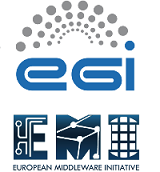Speaker
Impact
--
Description of the work
SAGA is an acronym for "Simple API for Grid Applications". As the name suggests, a simple API which facilitates the development and execution of distributed applications on most types of distributed infrastructure. Modern distributed computing environments are very complex infrastructures, and allowing applications to make use of these complex systems is not trivial. By defining a simple API, one requires those complexities to be dealt with at levels other than application code and development. Simplicity of the interface is the primary design principle and objective of SAGA. Functional goals of SAGA are:
-- Provide a stable programming interface to distributed application programmers and tool developers
-- Shield developer from heterogeneous and evolving infrastructures and middlewares
-- By providing the building blocks to distributed and remote operations enable the expression of high-level abstractions and support of distributed application requirements
The fact that SAGA is an OGF standard ensures the community-wide adoption and stability of the API.
SAGA is being enroled on EGI, to support a number of the current SAGA user communities which will be using EGI resources in the future. By showing the respective application use cases, and how they map into the SAGA landscape, we try to encourage a wider adoption of the SAGA software, for mutual benefits of end users and DCI operators.
URL
http://saga.cct.lsu.edu
Conclusions
--
Overview
The Simple API for Grid Applications is in the process of being included into UMD, and is expected to get enroled onto EGI platforms. This submission discusses the various components and usage modes of the SAGA distribution, and how they map onto various application use cases.

